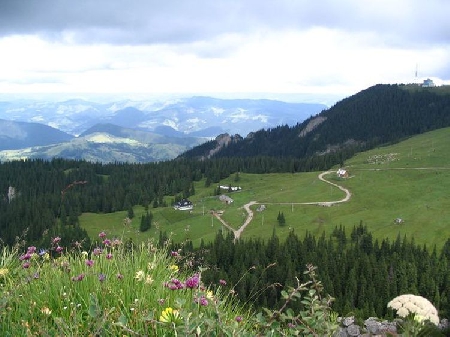Escaping Bucharest
Where do Bucharesters head to when they want to escape the disquieting life of the capital city?

Christine Leșcu, 11.09.2013, 12:01
Bucharest, the capital of Romania, has always been a magnet for all those trying to find a better job and a more comfortable way of living. For many years migration from rural areas to the capital was not offset by any other phenomenon. However, since the beginning of the economic crisis in 2009, this migration wave seems to have taken a different course: people started leaving Bucharest to lead better and quieter lives in villages and smaller cities across Romania.
There are those who have chosen to commute between the countryside and their city job, but also some who’ve left Bucharest for good. We have talked with Ioana Mihai, journalist with the Ziarul Financiar, about the reasons for which people leave the capital city and settle down in the countryside.
Ioana Mihai: “Many of them are retired people, those who have chosen to leave the city to take up a small estate in the countryside or in other towns. And there are students who understand they cannot get integrated in Bucharest. This city may offer better-paid jobs and a lot of benefits, but there is also a flipside of the coin, which translates into a lot of sacrifices; at times it may entail time-consuming, nerve-wracking experiences. With all its traffic-jams, Bucharest can be a real pain in the neck for someone trying to get to the office. This is highly unlikely in smaller cities. There is also the category of highly skilled people, those who have made it to the top of their career, a status allowing them to choose the city they want to raise their children in. I know top managers who’ve turned down a better position in the company they were working for in exchange for less significant jobs in companies, or just to start their own business outside Bucharest.”
Most Bucharesters have decided to settle at the city outskirts. Others prefer regions that have lately seen a lot of investment, such as Timis County. Eleven thousand people from all over the country have moved to Timis in recent years. Although Bucharest offers a lot of opportunities, life can be very expensive here. Here is Ioana Mihai at the microphone again.
Ioana Mihai: “If we take into account accommodation fees, rent rates and prices for one square meter of living space, both families and entrepreneurs who plan their expenses on the long-term have noticed that it is far cheaper to live outside Bucharest. Travel expenses inside the city must also be taken into consideration, because there are towns in Romania where a five-minute walk will take you to its remotest parts, something virtually impossible in Bucharest. In this city a five-minute walk will barely take you from one junction to another and I know people who’d like to devote more time to their families than stay stuck in traffic for hours.”
Time spent with the family was what Sabina Dumitrescu and her husband had in mind when together with another couple of friends they decided to set up a greengrocery business in Ialomita County, 60 kilometers from Bucharest. They also wanted healthy food, fresh air an enough playing space for their children. So they left an overcrowded Bucharest district to settle in the countryside. Here is what Sabina told us.
Sabina Dumitrescu: “We wanted to avoid pollution at any cost and the first night we spent in the countryside was great, we felt quite at home there. And the kids were so happy. We used to live in an apartment building before and though our apartment was close to a big park, our present situation is beyond compare. It’s important for the kids to see the forest nearby, the fields, to run freely in the yard. It’s a different kind of life.”
It wasn’t difficult for the newcomers to adjust to the new environment, on the contrary. Now they live in an area looking more like a Bucharest suburb; they enjoy the comfort of a city plus the quietness of the countryside. Here is Sabina Dumitrescu again.
Sabina Dumitrescu: “It’s a long way, you have to carefully plan your trips to the city and your activities there. But I think it’s worth the effort. When you come back home you get a distinct feeling. You have your own private space, your courtyard. I have not always been that obsessed with nature and flowers. I enjoyed living in a city, going out with friends, having an active urban life. But then we had the kids, priorities changed and it just seemed natural to us to move out of the city.”
The four friends, each in their thirties, knew little about agriculture when they started their own business, because they each took different paths in life, choosing either psychology, IT, architecture or mathematics as their field of activiy.
Matei Dumitrescu: “We mostly grow vegetables, especially seasonal ones that grow naturally in Romania and less fruit. We have a whole team working here, and a big number of day laborers in the summer. Knowing how to pick the best people is another secret of this trade. I hope that in 2 or 3 years we will be granted the organic farming certificate, and put the AE stamp on our products. For the time being, all startup companies are switching to organic farming, a process which might take several years.”
In conclusion, at times of crisis, solutions for improved living standards seem to become more diverse. On the lookout for better living conditions or in an attempt to live their lives in a more natural way, Romanians have started to search for solutions at national level. Migration and relocation to another country has thus been balanced.






























